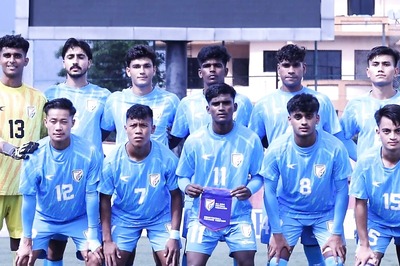
views
The government brought out on Monday a document on FAQs on the new IT rules, which were released this February, and insisted they do not affect the right to freedom of speech and expression, rather empower users in the online space.
The document also said the intent of the IT rules is “not to break or weaken the encryption in any way” but merely to obtain the registration details of the first Indian originator of the message. There has been a concern that the detection of first originator of the message in the messaging platforms such as WhatsApp could compromise the end-to-end encryption.
“The electronic replica of the message (text, photo or video, etc.) will be shared by the requesting agency along with a lawful order. A typical principle of detection is based on the hash value of the unencrypted message wherein identical messages will result into a common hash (message digest) irrespective of the encryption used by a messaging platform. How this hash will be generated or stored needs to be decided by concerned SSMI (Significant Social Media Intermediary), and SSMI are free to come up with alternative technological solutions to implement this rule,” the FAQ document says.
It says the rationale of this requirement is that if the intermediary has to convey to its users not to upload or share a particular type of content as part of its terms of use, it should have the capability of determining so or else the platform loses its own capability to enforce its own terms of usage. “While encryption ensures safety and security of the data, and the privacy norms self-imposed by the intermediary may be needed, it is also imperative that the platforms should not be used to carry out sharing of any unlawful content as specified under the IT Rules, 2021 and other applicable laws.”
Insisting that the rules do not violate Article 19 of the Constitution that guarantees right to freedom of speech and expression and are consistent with them and article 19(2) that defines the reasonable restrictions, the FAQ document points out that the new IT Rules, 2021 “place no additional obligations on users and do not contain any sort of penalties applicable on users”. The document further says the IT Rules, 2021 are meant to benefit general user on the platform.
“These measures are intended to empower users in the online space, and protect their rights and dignity. The Rules, by providing these reasonable mechanisms and remedies, strive to ensure that social media platforms remain a safe space for all users, free from cyber threats, harassment and unlawful content,” the government’s FAQ document specifies.
It points to a “robust grievance redressal mechanism” being in place to ensure that users whose content or access is unreasonably removed may highlight such error to the intermediary for remedial action. “The idea is to promote a two-way communication between the aggrieved users and the intermediary. It is expected that the intermediary provides a reasonable explanation to the aggrieved user. In case of a frivolous complaint, the nature of the complaint can be cited as the reason for any action not taken. The rules provide flexibility to the intermediaries to decide the best way to give an explanation and due process to the user, keeping in mind the safety of the reporting party. The idea is to promote accountability while giving flexibility,” the document says.
The government insists that it is making the intermediaries more accountable. “These Rules provide for ensuring accountability of intermediaries to the users, ensure that Intermediaries are responsive to the concerns and grievances of users and make sure users can meaningfully reach out to SSMIs (Significant Social Media Intermediaries) at a physical contact address in India to voice their concerns, as many SSMIs are international organizations,” the document says.
The government says social media intermediaries need to send periodic reminders to users that content which may be illegal or harmful to other users, such as those falling under harassment, insults, fake news, misrepresentation, invasions of privacy, paedophilic, pornographic, defamatory and obscene, should not be posted. The FAQs say while there are no penalties on the users, they do need to ensure that the content they share does not violate the IT Act or other existing laws such as IPC or the Copyright Acts they may be liable to be prosecuted/ penalized under all such laws.
The FAQs also say the Chief Compliance Officer and the nodal contact person in an SSMI cannot be the same person, whereas the roles of the nodal contact person and the Resident Grievance Officer may be performed by the same person. “However, keeping in view the functional requirements of the nodal contact person and the Resident Grievance Officer, it is desirable that SSMI appoints separate persons for the two roles,” the document says.
Whether platforms and apps, which act as news aggregators, qualify as intermediaries or covered as Publishers under the IT Rules, 2021, a further clarification on the rules relating to news and current affairs content may be sought from the Ministry of Information and Broadcasting.
Read all the Latest News , Breaking News and IPL 2022 Live Updates here.



















Comments
0 comment